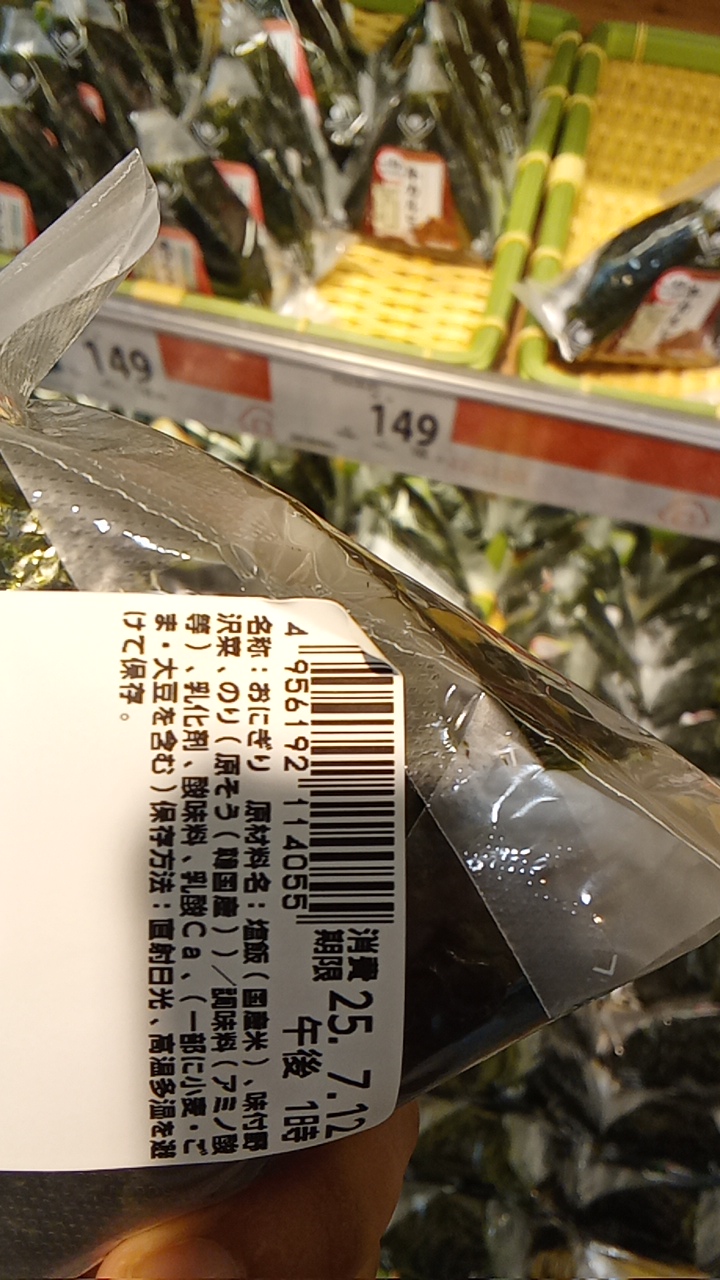
Barcode: 4580306272944
おにぎり (onigiri)
HALAL
📝 Reason: While most ingredients in this onigiri are plant-based and Halal, ’emulsifier’ and ‘calcium lactate’ can be derived from animal, plant, or synthetic sources. Without explicit source or Halal certification, their status remains doubtful per Islamic guidelines (Quran 5:3: avoid doubtful things). In this case, Halal_Result is 2 (Doubtful) because at least one ingredient is marked Doubtful. References: IFANCA, Foodchemadditives.
🏷️ Category: Rice Ball
📄 Certificates: Vegetarisch, Vegan
Ingredients:
Details
Understanding the Halal Status of おにぎり (onigiri)
おにぎり, or Japanese rice balls, are a popular snack and meal option known for their convenience and flavor. However, for those adhering to Halal dietary laws, determining the Halal status of this product is essential. In this article, we will delve into the ingredients of おにぎり and discuss their Halal status, particularly concerning the E-numbers and any possible concerns surrounding them.
Ingredients Breakdown
The main ingredients in おにぎり include:
- Rice (domestic)
- Seasoned takana
- Nori (processed in Korea)
- Seasoning (amino acids)
- Emulsifier
- Acidulant
- Calcium lactate
- Soybean
Ingredient Analysis
1. Rice (domestic): Rice is a plant-based staple and is Halal unless it comes into contact with non-Halal elements. It is generally accepted in the Halal community. More information.
2. Seasoned Takana: This is pickled mustard leaf, which is plant-based. Although the seasoning is unspecified, no meat or alcohol is present in its typical formulation. Learn more about Takana.
3. Nori (processed in Korea): Nori is an edible seaweed considered Halal, provided it is not processed with any non-Halal additives. Review its Halal status here.
4. Seasoning (amino acids): Amino acids are generally derived from non-animal or non-alcohol sources, making them acceptable in Halal diets as long as their origins are verified. Explore more about amino acid sources.
5. Emulsifier: The status of emulsifiers is marked as doubtful because they can be derived from plant, synthetic, or animal sources. Without knowing the specific source of this emulsifier, it raises a question mark regarding its Halal status. For further insight, check this article.
6. Acidulant: Generally seen in products like citric acid, acidulants are typically derived from plant or synthetic origins. Their Halal status is generally acceptable unless proven otherwise. Read more here.
7. Calcium Lactate: While calcium lactate can be derived from plant fermentation, it can also originate from dairy. This uncertainty leads to a doubtful Halal status unless it has been certified Halal. More details can be found at this source.
8. Soybean: Soybeans are undeniably plant-based and, thus, Halal. It’s another excellent source of protein that fits well into the Halal diet. More on soy can be read here.
Halal Certification Context
This おにぎり product categorically holds a Halal status based primarily on its plant-derived ingredients. However, due to the uncertainty surrounding emulsifiers and calcium lactate, consumers are encouraged to seek clear labeling or certification to verify the Halal status of each ingredient.
The presence of certifications like ‘Vegetarisch’ and ‘Vegan’ indicates that while this product is plant-based, it may not consider the strictest Halal dietary laws.
Conclusion
In conclusion, while most of the ingredients in おにぎり are plant-based and typically considered Halal, the doubts surrounding the emulsifier and calcium lactate necessitate discretion. Shoppers should consider these factors while making informed decisions about their food choices. It is advisable to check product labeling and certifications when available, ensuring compliance with Islamic dietary laws.
